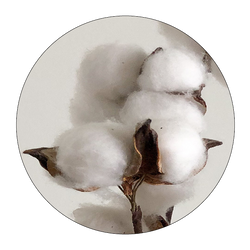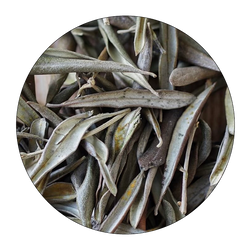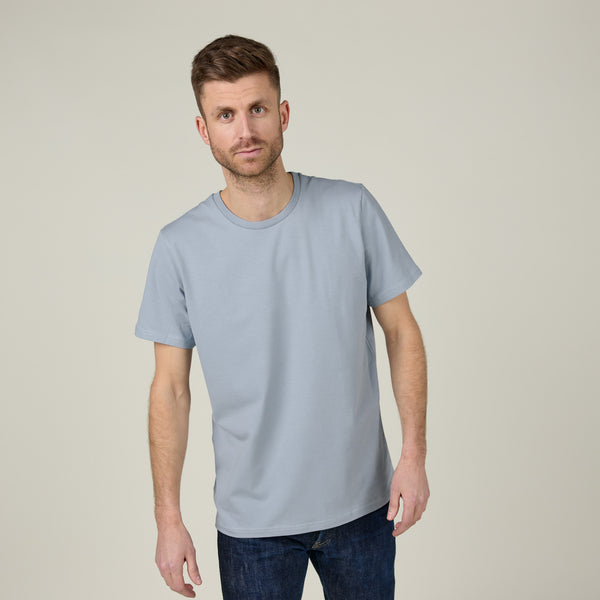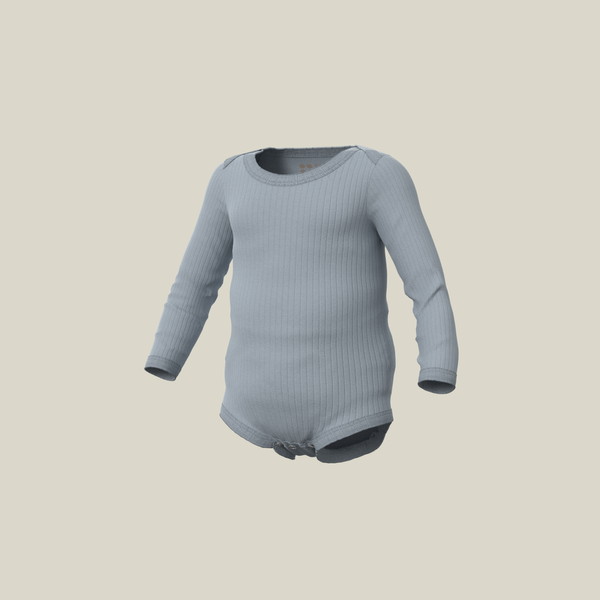To revolutionize the textile industry to create positive change for people and the planet
Colored by nature
All our basics are dyed with plant-based dye, which comes from, among other things lavender, olive leaves and pomegranate peels. It spares you, your family and the planet from unnecessary chemicals.
Everyday basics
We make basics with a focus on good craftsmanship and prioritize durability, fit and
comfort across seasons and collections. Our basics are created on organic
materials and clay minerals that keep the clothes soft.
Common sense
We want to be a positive inspiration in the textile industry. We do this by not producing more than we sell, as well as continuously working on how we can reduce our water and energy consumption to a minimum.
Transparency
Transparency is at the heart of our business. We ensure that everyone in our value chain – from the cotton farmer to the seamstress – has a healthy business, while we have full insight into how our basics are produced
To inspire beyond zero
Elemental Coloring's value chain

1. Organic cotton
Our basics consist of GOTS-certified organic cotton
cotton fields in Turkey.
Through close cooperation with our cotton farmers, we can ensure that the cotton is grown and harvested without the use of pesticides, other spraying agents and with a water consumption that is kept to a minimum.
It is only harvested when the fibers on the cotton plant are the longest, as this gives the highest quality and the greatest possible yield.

2. Spinning
The organic cotton fibers and cotton seeds are sorted so that the seeds are dried and used for next year, while the fibers go on to the spinning mill.
The fibers are spun into yarn by twisting the fibers around each other until the right strength, weight and thickness is achieved.

3. Knit
The organic cotton yarn is knitted for the items by the meter we use to make Elemental Coloring basics.
We use different types of yarn in our sweat, jersey and rib basics, depending on the weight, comfort and durability we want in the fabric.

4. Natural coloring
All our basics are dyed with natural, plant-based colors. It is a cornerstone of our approach to making chemical-free basics.
Our coloring is done with residual products from food and agriculture – e.g. olive leaves, lavender, pomegranate peel and
walnut shells. The color is mixed with natural clay minerals, which bind it to
the metered product and maintains its expression.
In addition, the plant-based coloring takes place
without fabric softeners, salts and other synthetic chemicals, which are traditionally the main ingredients in the conventional dyeing process.
You can therefore be completely sure of what you dress yourself and your family in.
5. Sewing room
All our basics are sewn in our own sewing room in Turkey, which is GOTS (Global Organic Textile Standard) certified. GOTS is the textile certification with the most ambitious requirements for all links in the value chain.
In this way, we can ensure that our cotton is organic and that everyone in our value chain has wages and working conditions that follow the GOTS standard.
Because we sew all our basics ourselves in Turkey, we can avoid overproduction and unnecessary transport from Asia to Europe.
Our resource approach
Through plant-based dyeing, we use 12 liters of water per 1 kg of fabric. This is a significant saving compared to conventional dyeing, where 64 liters of water are used per 1 kg of fabric.
So, a water saving of more than 80%.
The water saving is due to the fact that the plant-based dyeing process is faster, just as the same amount of water does not have to be used to rinse synthetic chemicals out of the meter goods afterwards.
The plant-based dyeing process therefore halves the time required for dyeing, just as the dyeing temperature is significantly lower than with conventional dyeing.
Therefore, we only use 2,392 kcal per kg. substance we dye, compared to a
energy consumption of 6,944 kcal per kg of fabric for conventional dyeing.
That is 65% less energy consumption.
Goals for the future
Already achieved
- Basic clothes without chemicals
- Plant-based coloring
- More than 80% water saving when dyeing
- 65% energy saving when dyeing
- Organic cotton
Future goals
- 100% renewable energy in production and transport
- 100% recyclable water consumption in the cotton field and during dyeing
- Regenerated agricultural techniques in the cotton field
- Development of compostable products
- Preparation of LCA (Life Cycle Assessment) on our products
- Development of an exchange for children's and baby products


